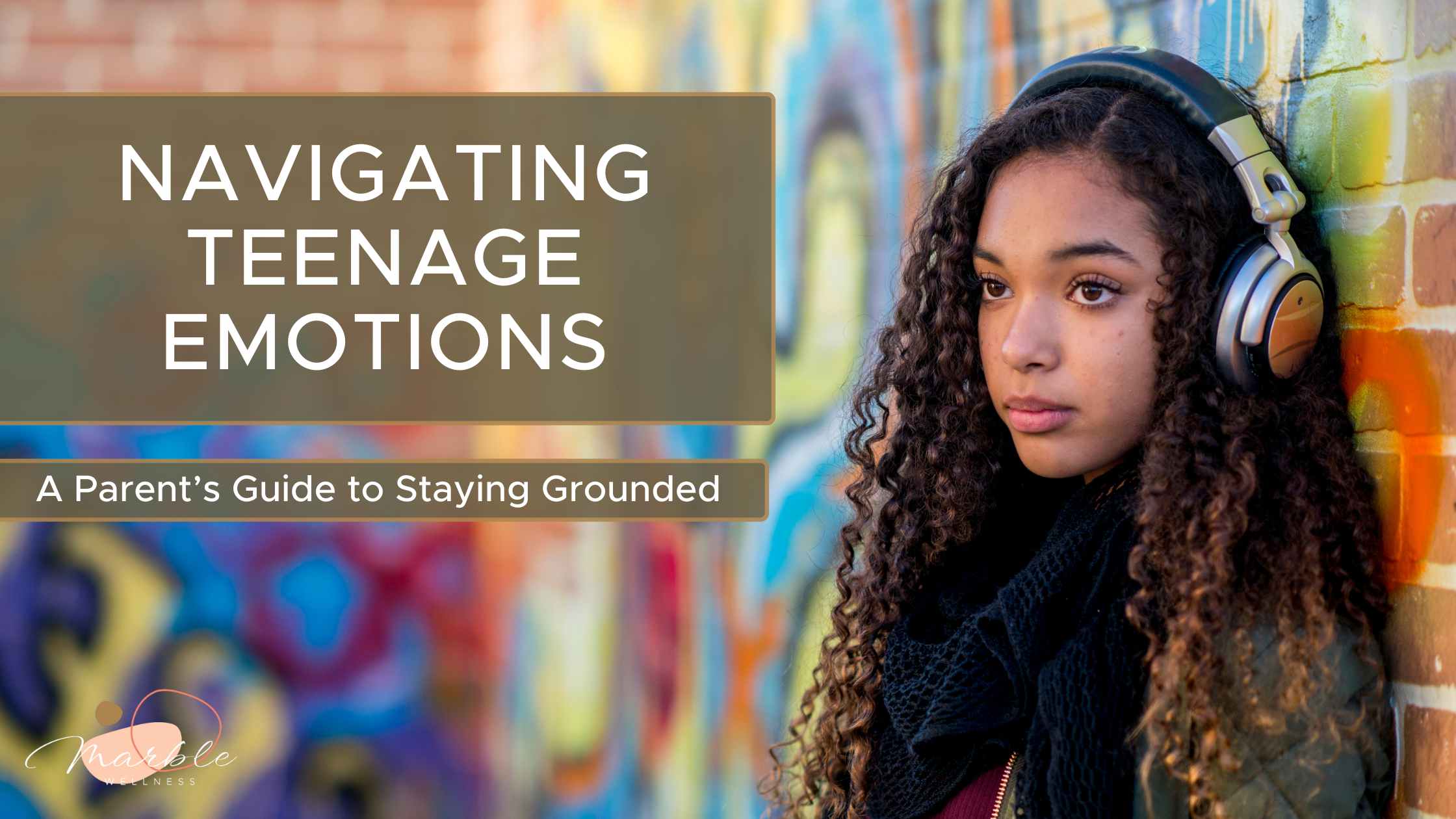Have you ever looked at your teen and wondered, “Is she really as happy as she seems?” You’re not alone. Recently, a mother shared with us, “My teen daughter seems to be faking happiness.” This statement echoes a growing concern among parents of teens in Ballwin, Kirkwood, Chesterfield, and throughout the St. Louis area. Today’s teens face immense pressure to appear happy–even when they’re struggling inside.
Let’s explore why teens feel compelled to put on a happy face, what warning signs parents can watch for, and how families can create space for real conversations and authentic emotions.
The Hidden Reality: Why Teens Fake Happiness
Teens today are growing up in a world where appearances matter more than ever. Social media feeds are filled with smiling selfies, perfect vacations, and highlight reels of success. For many teens, there’s an unspoken rule: You must look happy, no matter how you feel inside.
Social Media and the “Happiness Competition”
Recent studies and interviews with young people reveal that social media is a major driver behind the need to appear happy. Teens describe platforms like Instagram and Facebook as “one big happiness competition.” They feel pressure to “curate” their lives, sharing only the best moments and hiding the rest. Even when they’re having a rough day or feeling lonely, they post smiling photos and upbeat captions.
One college student put it bluntly: “Everybody’s fake, everybody’s fake, everybody’s fake.” This constant performance can leave teens feeling isolated and disconnected from their true selves.
Why the Pressure?
- Fear of Judgment: Teens worry that showing sadness or struggle will lead to gossip, exclusion, or even bullying.
- Desire to Fit In: When everyone else seems happy, teens feel like they have to keep up–even if it means pretending.
- Academic and Extracurricular Stress: The drive to succeed can make teens feel like there’s no room for anything less than positivity.
- Family Expectations: Well-meaning parents may unintentionally reinforce the idea that happiness is the goal, overlooking the value of other emotions.
Warning Signs: Is Your Teen Faking Happiness?
It’s easy to miss the signs when a teen is masking their true feelings. Many parents assume that if their child is smiling, laughing, or keeping up with friends, all is well. But “smiling depression”–where someone hides distress behind a cheerful exterior–is real and can be dangerous if left untreated.
Common Signs Your Teen May Be Faking Happiness
- Sudden changes in eating or sleeping patterns
- Increased irritability or anger
- Withdrawal from family or close friends, even if they seem social elsewhere
- Difficulty concentrating or a drop in academic performance
- Expressions of hopelessness or feeling “empty”
- Loss of interest in activities they once enjoyed
If you notice these signs, trust your instincts. Teens who are struggling often go to great lengths to hide their pain, especially if they feel pressure to “just be happy”.
The Emotional Toll of Pretending
Faking happiness isn’t just exhausting-it can be harmful. Bottling up emotions can intensify feelings of sadness, loneliness, and anxiety over time. Teens may start to believe that their real feelings are wrong or unacceptable, leading to shame and isolation.
Research shows that suppressing emotions can increase the risk of depression and even suicidal thoughts. In fact, suicide is now one of the leading causes of death among teens aged 12 to 19. This makes it even more important for parents and caregivers to notice when something doesn’t feel right.
How Parents Can Help: Creating Space for Real Emotions
The good news? There are practical steps you can take to support your teen and encourage authentic emotional expression.
1. Open the Door for Honest Conversations
Let your teen know it’s okay to feel sad, angry, or anxious. You might say, “I’ve noticed you seem happy on the outside, but I wonder if you’re feeling something different inside. I’m here to listen, no matter what.”
2. Practice Active Listening and Empathy
When your teen does open up, listen without judgment or immediate solutions. Validate their feelings by saying things like, “That sounds really tough,” or “It’s okay to feel that way.” This helps build trust and shows your teen that all emotions are welcome.
3. Teach Emotional Vocabulary
Teens sometimes lack the words to describe what they’re feeling. Help them build an emotional vocabulary by naming emotions together or using resources like journals, mood charts, or group activities.
4. Model Authenticity
Share your own struggles and how you cope with difficult emotions. Let your teen see that it’s normal to have ups and downs–and that happiness isn’t the only goal.
5. Set Healthy Boundaries Around Social Media
Encourage your teen to take breaks from social media and reflect on how it impacts their mood. Remind them that what they see online is often a highlight reel, not the full story.
6. Seek Professional Support When Needed
If your teen seems overwhelmed or you’re concerned about their mental health, don’t hesitate to reach out for help. Therapy can provide a safe space for teens to explore their feelings and develop healthy coping strategies. Marble Wellness offers compassionate counseling for teens and families throughout the St. Louis area.
Encouraging Real Happiness: Coping Strategies for Teens
Help your teen discover healthy ways to process their emotions and find genuine moments of joy:
- Journaling: Writing about feelings can help teens make sense of their emotions and release stress.
- Exercise: Physical activity is a proven mood booster and can help manage anxiety and depression.
- Mindfulness and Meditation: Simple breathing exercises or guided meditations can help teens stay grounded.
- Creative Outlets: Art, music, and other hobbies provide a safe space for self-expression.
- Connecting with Trusted Adults: Encourage your teen to talk with a counselor, teacher, or family member they trust.
Teens: You’re Not Alone
If you’re worried your teen is faking happiness, know that you’re not alone–and neither is your child. The pressure to appear happy is real, but with open communication, empathy, and support, you can help your teen move from pretending to truly feel better.
At Marble Wellness, we’re here to support families in Ballwin, Kirkwood, Chesterfield, and across St. Louis. If you or your teen need guidance, don’t hesitate to reach out. Together, we can create a space where every emotion is welcome–and where real happiness has a chance to grow.
Start Therapy for Teens in the St. Louis Area
If you live in the St. Louis metro area and are ready to improve your mental health, our expert St. Louis therapists are here to help. Not only do we have a team of therapists in Ballwin, MO, but we have also recently expanded to serve the Lake St. Louis and Wentzville area! Reach out to our Client Care Coordinator today to discuss your therapy options, both in-person and via online therapy in Missouri.
Contact Us!
Learn About Our Group Offerings

Additional Counseling Services at Marble Wellness in St. Louis, MO
Marble Wellness Counseling services are designed to help set you on a path of living a more fulfilled, calm, and happy life. Our St. Louis area therapists have a variety of training backgrounds and areas of expertise. We have child and play therapists, therapists for teens, EMDR therapists, men’s mental health experts, couples therapists, and more! We specialize in anxiety, depression, grief, chronic illness, trauma & PTSD, life transitions, and maternal overwhelm. Our practice also specifically helps new moms with various postpartum concerns, moms in the thick of parenting, and moms with teens. We can also chat from wherever you are in the state with online therapy in Missouri. No matter where you are in your journey, we are here to help you thrive!



